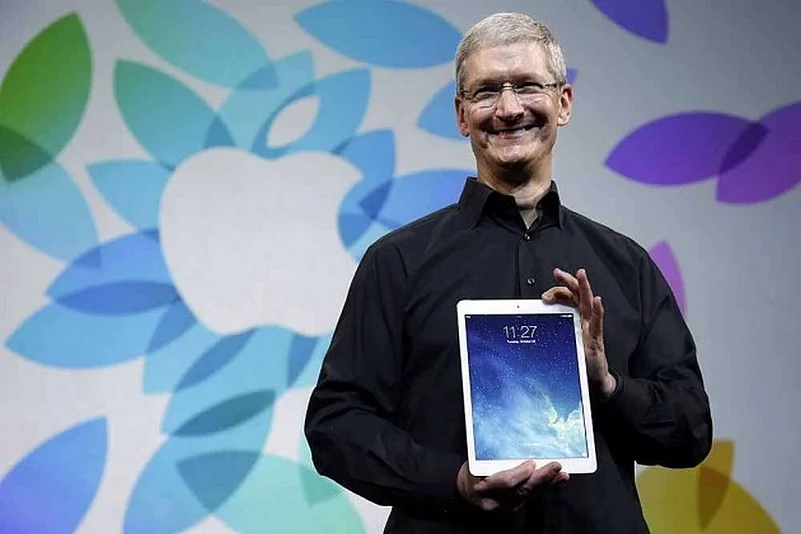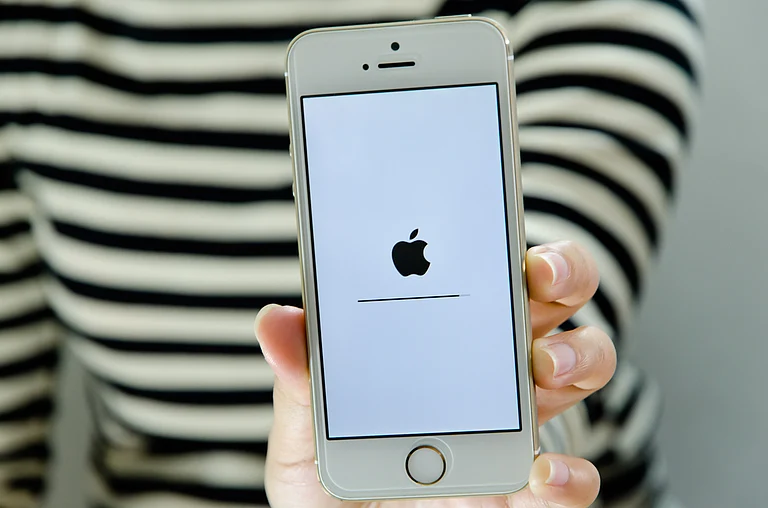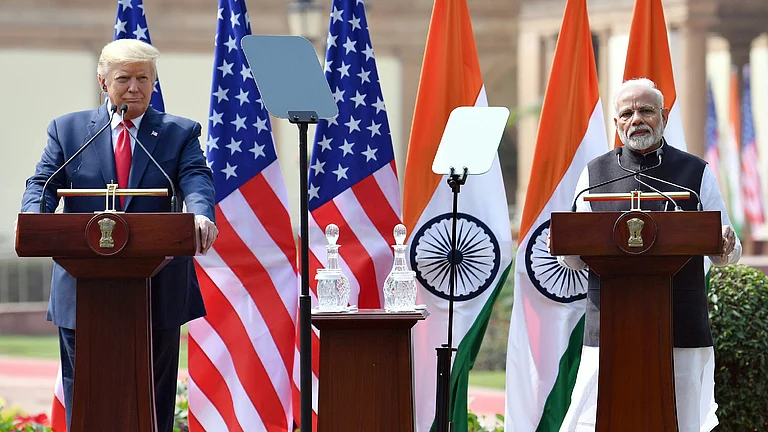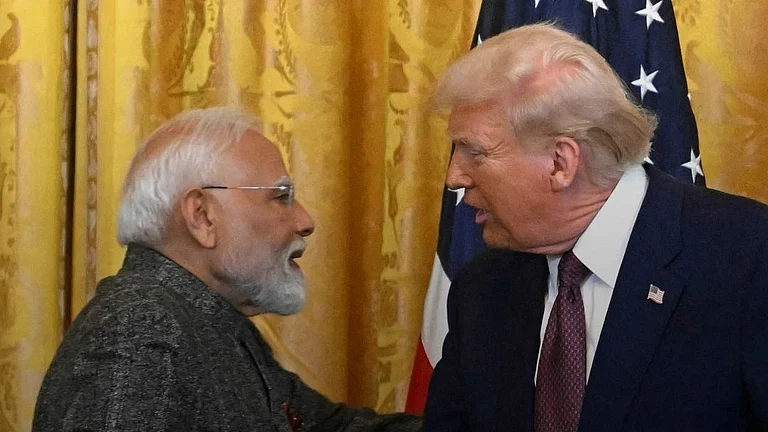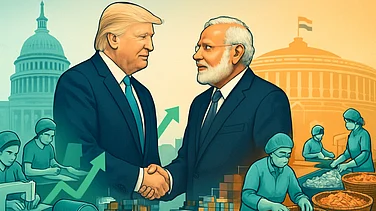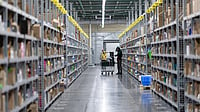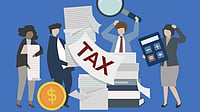Apple CEO Tim Cook met with US President Donald Trump at the White House on February 20. He later told Fox Business that the meeting went "great." This came a day after Cook launched the latest version of Apple's flagship product, the iPhone 16e.
According to a Bloomberg report, the Trump-Cook meeting was aimed at safeguarding the tech giant’s products from the 10% tariff Trump has imposed on all Chinese goods shipped to the US. These tariffs are in addition to those Trump had imposed during his first term, which former President Joe Biden had left intact.
Analysts say iPhone maker Apple, like other companies that source products from China, has been caught in the middle of this tariff dispute. But in 2019, Cook’s reportedly close relationship with Trump helped Apple escape tariffs on Chinese imports. The question is—will it happen again?
Apple’s Supply Chain Dependence on China
Apple does not manufacture its products directly; instead, it outsources production to contract manufacturers like Foxconn, Pegatron, and Compal, which assemble Apple devices based on the company's designs and specifications.
Until 2022, Apple was manufacturing more than 90% of its products in China through outside contractors, according to a report by The Wall Street Journal. But since then, it has pushed suppliers to diversify production to India, Vietnam, and even back to the US. Currently, according to a Bank of America analyst, about 50% of Apple devices are sourced from China.
During his 2016 presidential campaign, Trump vowed to bring Apple manufacturing back to the US, saying, “I’m going to get Apple to start making their computers and their iPhones on our land, not in China. How does it help us when they make it in China?”
While Apple is still expanding its manufacturing base in the US, India has benefited from Apple suppliers like Foxconn and Pegatron setting up factories in the country. Additionally, Tata Electronics is rapidly increasing its shipments to Apple. Part of this diversification was driven by tariffs and restrictions imposed on China by both the first Trump administration and the Biden administration that followed.
Vietnam is reportedly poised to play a significant role in Apple's manufacturing ecosystem by 2025, accounting for 20% of iPad and Apple Watch production, 5% of MacBook production, and a substantial 65% of AirPods production. Meanwhile, Apple and its suppliers are also ramping up iPhone production in India, aiming to assemble 32% of global iPhone production volume by the 2026-27 fiscal year, according to the India Brand Equity Foundation.
Cook’s Lobbying and Tariff Exemptions
Apple CEO Tim Cook has adeptly navigated the challenges posed by President Donald Trump's trade policies. In 2019, amid potential tariffs that could have disrupted Apple's supply chain, Cook reportedly engaged in direct discussions with Trump. This proactive approach led to Apple securing exemptions for its flagship products, including the Mac Pro.
That year, the U.S. Trade Representative granted Apple exemptions on 10 out of 15 requested components for the Mac Pro, including partially completed circuit boards and graphics cards. However, exemptions were denied for five components, such as the optional wheels, a circuit board for managing input and output ports, a power adapter, a charging cable, and a cooling system for the processor, subjecting them to a 25% tariff.
Notably, Cook gifted Trump a $5,999 Mac Pro, one of the first produced at Apple's Austin, Texas, facility.
Additionally, in December 2019, Apple narrowly avoided a 15% tariff on flagship products like the iPhone, iPad, and MacBook after Trump approved a trade deal with China, preventing the tariffs from taking effect on December 15.
This time around, as Trump's re-election heightened fears of another trade war with China, Cook—like other Big Tech CEOs—engaged with Trump and donated $1 million to his inauguration fund. Shortly after the election, Cook posted on social media, stating that Apple looked “forward to engaging with you and your administration to help make sure the United States continues to lead with and be fueled by ingenuity, innovation, and creativity.”







